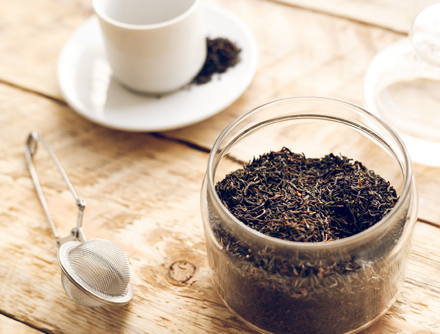
Caffeine
Contrary to popular belief tea does not contain more caffeine than coffee, it actually contains about 50mg - half the amount compared to instant coffee and a third of filter coffee.
Caffeine is found naturally in many types of food and drink. It's also a stimulant so a cuppa can help refresh you for a demanding and tiring afternoon ahead. We are not aware of any internationally recommended maximum levels for healthy adults but the UK Food Standards Agency has determined that a pregnant woman should restrict her daily caffeine intake to 200 mg per day (or 5 cups of tea!).
To find out more please see below and read the articles on www.teaadvisorypanel.com/tea/hydration
Articles and research (1)
| Title | Date | Category | Description | |
|---|---|---|---|---|
| The suitability of caffeinated drinks for children. | 19th Jun '13 | Caffeine | The increased availability of caffeinated drinks raises questions about the level of caffeine that is appropriate for children, as well as the benefits and risks associated with their consumption. | View |
Latest news
-

Four Cuppas A Day Could Help Keep Inflammatory…
A regular brew may help reduce inflammation, especially in people with existing high levels, suggests new… Read More -

BANISH BLUE MONDAY BY MAKING IT A BREW…
New survey shows two thirds need a cuppa to tackle the day ahead. 33% say tea… Read More -

A THIRD OF BRITS TURN TO TEA TO…
Turning a cuppa into an occasion this Afternoon Tea Week could also support a healthy heart,… Read More